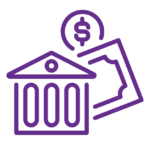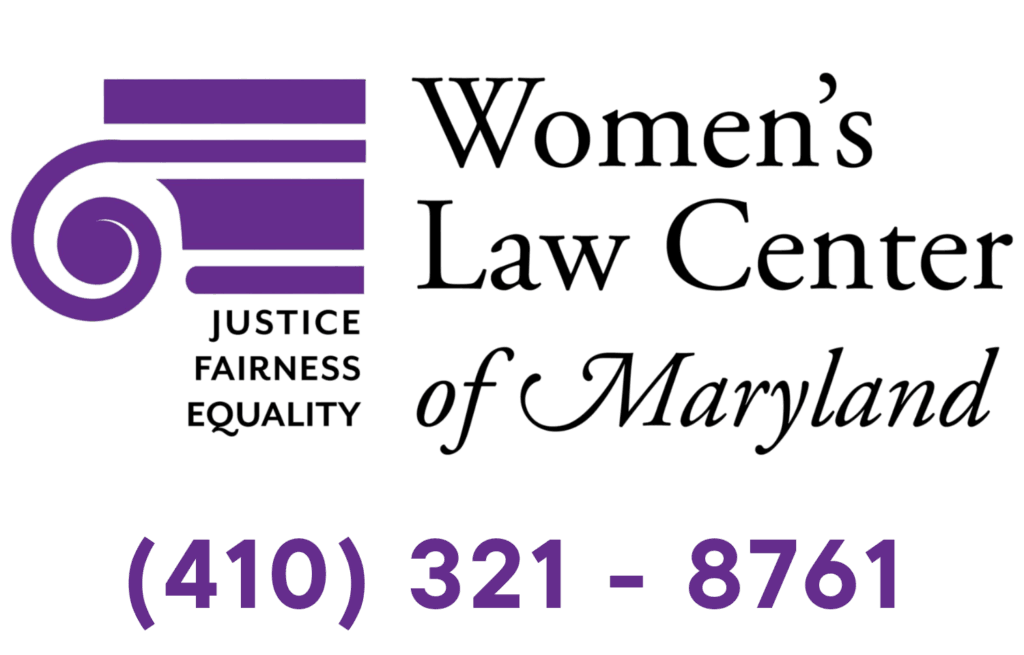financial abuse
All services of the Women’s Law Center of Maryland are free, confidential and – pending capacity constraints – available to all persons regardless of gender/assigned sex at birth, race, national origin, ethnicity, age, religion, as well as disability or veteran status. Accommodations, including translation services, are available upon request.

ECONOMIC JUSTICE: SEED PROGRAM
Ninety-nine percent of victims of domestic violence experience financial abuse, and the number one reason survivors stay in abusive relationships or return to abuse is because they cannot afford to leave or stay safe. Examples of financial abuse can include:
Sabotaging employment opportunities.
Forbidding you from working.
Controlling how money is spent.
Denying you direct access to bank accounts.
Giving you an “allowance”.
Forcing you to write bad checks or file fraudulent tax returns.
Running up large debts on joint accounts without your permission.
Forcing you to work in the family business without pay.
Refusing to pay bills for accounts in your name in order to ruin your credit.
Forcing you to turn over paychecks or public benefits checks.
Forcing you to account for all money you spend by showing receipts.
Applying for credit accounts using your name and personal information.
Withholding money for basic necessities like food, clothing, medication and housing.
Spending money on themself but does not allow you to do the same.
Giving you presents or pays for things and expects something in return.
Forcing you to work while they do not and yet still controlling all the money.
For many survivors of domestic violence, the journey toward economic stability can be an uphill challenge. This is why the WLC has partnered with the Maryland Network Against Domestic Violence‘s Survivor Economic Empowerment & Development (SEED) Program to provide financial literacy training, credit education, and personalized funding to help survivors safely leave abusive situations.


FREQUENTLY ASKED QUESTIONS: SEED PROGRAM
Moving Ahead Curriculum: Financial Literacy Training
The Moving Ahead Curriculum is an educational resource provided by the Allstate Foundation to help domestic violence survivors achieve financial independence and rebuild their lives. The curriculum covers a variety of important financial topics including budgeting, managing debt and improving credit and has been proven to help survivors move from short-term safety to long-term security. Most recently, the program has been expanded to include instruction on asset-building programs, saving strategies, retirement, investing, insurance overviews and more: click here to request access.
Credit Education
Credit scores have become an integral part of our financial lives. Your score — something between 300 and 850 — signals to lenders if you are “creditworthy.” People with higher scores tend to have better access to financial products and services, while people with lower credit scores might not qualify for some things, such as loans and credit cards, and may be charged more in interest. Score calculations consider a variety of credit scoring factors such as payment history, how much of your available credit you’re using, how long you’ve had credit and your credit mix.
If an abuser has accumulated debt in your name that has not been paid on a timely basis, this will likely affect your credit negatively. However, depending on the factors in your specific situation, it may be possible to challenge some of the debt or to take steps to improve your credit score to try to undo some of the damage. Keep in mind that you will most likely be held responsible for the debt on any accounts that you co-signed. However if anyone, including a spouse, family member, or intimate partner, uses your personal information to open up an account in your name without your permission, this could be considered identify theft.
Survivors working with the WLC are eligible for free credit education through the SEED Program. To receive a referral click here.
Survivor-Identified Funding
The SEED Program provides essential financial support such as job and court-related expenses, childcare, housing costs, and more to help survivors rebuild their lives and achieve long-term safety and stability. WLC clients should speak with their advocate to learn more.
Spouse's Debts
In general, spouses are not responsible for each other’s debts. Learn more.
However, there are certain situations where a spouse may become liable for their partner’s debt. This occurs when the spouse willingly agrees to be personally responsible for the debt, such as by co-signing a loan or jointly opening a credit account. If you are unsure about your liability for an account, check the account paperwork. If your name is on the account or you signed the agreement, you are most likely responsible for paying back any debt that may arise under that account, regardless of who incurred the debt.
You are NOT responsible for the debt of your spouse if:
You did not sign an agreement holding you personally responsible for the debt.
The debt arose before your marriage.
The debt arose after your divorce.
You can prove that the debt was a result of fraud.
